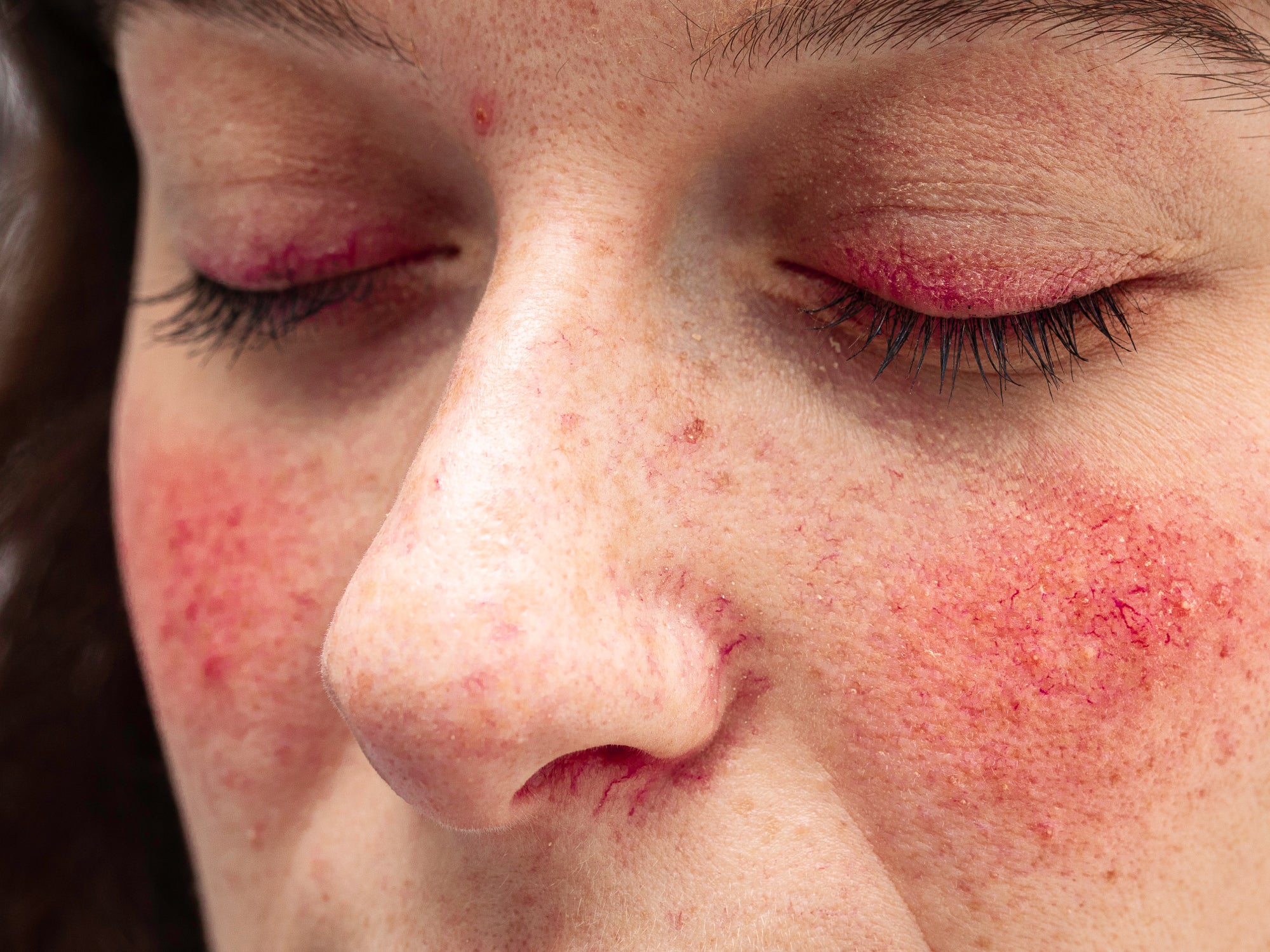
Rosacea may be a complex condition, but one thing everyone agrees on is that a flare-up can be triggered by what you eat!
Like many chronic inflammatory conditions, rosacea flares are directly linked to triggers which affect your skin in various ways. These triggers vary from person to person, but most sufferers find that the food they eat is a major factor.
It’s important to note that not everyone will be affected by every food in the following list, so don’t just cut everything out completely! The best way to determine your own individual food triggers is to keep a trigger diary, noting down what you’ve eaten, and how your skin reacts.
You might find it useful to include other factors, in case those are having an effect on your skin too! These might include the following:
- alcohol
- weather conditions
- temperature
- mood
- exercise or activity
- what toiletries/skincare/sunscreen you’ve used
According to the patient support network Rosacea.org, the following foods are worth looking at in case they’re triggering your rosacea flares or exacerbating existing inflammation:
- Liver
- Dairy products such as yoghurt, sour cream, cheese (except cottage cheese)
- Chocolate
- Vanilla (check for vanilla extract in cakes and desserts)
- Soy sauce
- Yeast extract
- Vinegar
- Aubergine
- Avocado
- Spinach
- Broad-leaf beans and peas, including butter beans, haricot beans and garden peas
- Fruit, including citrus, tomatoes, bananas,
red plums, raisins or figs - Spicy foods, especially those including spices such as cinnamon and chilies
- Hot (as in temperature) foods and drinks
- Foods high in histamine, such as dried fruits, processed meats, aged cheese, smoked food and shellfish, nuts, particularly walnuts, cashews and peanuts
It’s important to get an expert diagnosis from a dermatologist or doctor so that you’re give the right treatment, but do check out our article about Rosacea Awareness Month for management strategies at home.
Recommended products for skin prone to rosacea:
Balmonds Daily Moisturising Cream with shea butter, calendula and hemp (from £13.99 for 100ml): a nourishing but non-comedogenic daily moisturiser, for use anywhere on the body, face and hands.
Balmonds Cooling Cream with shea, menthol, aloe vera & lavender (£19 for 100ml); a light lotion designed to take the heat out of flushed skin.
Balmonds Intensive Facial Oil with rosehip, calendula, lavender & chamomile (£22 for 30ml): a rich, regenerative oil to help balance and restore sensitive skin.
